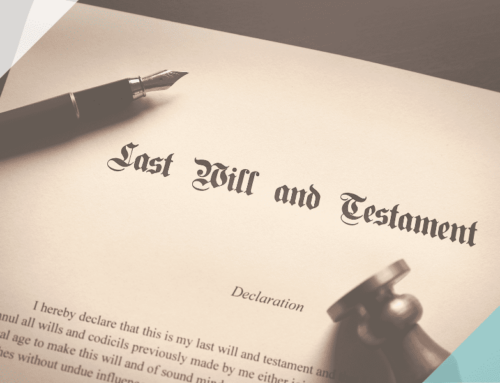The nation has witnessed over 20,000 people across the UK sadly losing their battle with coronavirus with many families being unable to spend precious last moments with their loved ones.
Equally families have been unable to grieve and comfort one another making this experience simply soul destroying. We don’t want to pretend that as a solicitor we magically have all the answers however we would like to share with you some practical advice in the hope this will ease any legal or additional concerns you may have.
Coming Together
During this time many of our local hospitals, hospices and care homes have stopped or significantly reduced the amount of people able to visit their loved ones.
In the Colchester and Ipswich hospitals plus the community hospitals across Essex and Suffolk new rules were put into place on 17th March. These are to protect patients and medical staff from COVID19.
The rules are:
- One visitor per adult patient at a time
- Two parents or responsible carers per child patient
- No children (under 12 years) on site without prior agreement
However, discretion will be used when applied to end of life patients and their families.
If you are unable to be with one another during this time you may also find apps such as FaceTime and WhatApp very useful. These can be used with a laptop, PC or mobile phone. If you click on the links, you’ll be able to watch a simple how to guide.
Registering A Death
When registering the death of a loved one you will need a hospital administrator form. However, if the death was unexpected you may require a coroner’s report.
A close family member should contact the local register office within five days.
The Ipswich office is at St Peter House, 16 Grimwade Street, Ipswich, IP4 1LP. However due to the Coronavirus this office is shut to the public therefore you are best to call or email them. You can call the Ipswich Register Office on: 0345 607 2050 or email them on: Ipswich.registrars@suffolk.gov.uk.
If you are based in a different part of Suffolk you can find additional contact information by clicking here.
The Colchester office is at Colchester Library, 21 Trinity Square, Colchester, Essex, CO1 1JB. Again, this office is shut to the public due to the coronavirus and therefore you are best to call or email them. You can call the Colchester Register Office on: 0345 603 7632 or email them on: registration@essex.gov.uk.
They may ask you the following questions, so it might be worth jotting down this information on a piece of paper to help guide you.
- Their full name
- Did their have any previous names
- Their date and place of birth
- Their address or last address if living in a care home
- Their occupation
- If they were receiving any benefits including a State Pension
The registrar may also ask similar questions regarding the surviving partner.
Once this is done you will receive in the post the following certificates:
- A Burial or Cremation
- A Registration of Death (form BD8)
In addition, you might also find the Tell Us Once Bereavement Service useful as this allows you to inform multiple organisations at once. Your local registrar will be able to offer you more information about this service.
Managing Their Estate – Wills and Probate
Firstly, you need to locate their Will and/or contact your solicitors.
If no Will has been made or a Will is classed as invalid then under law their estate is divided in accordance with the rules of Intestacy. Under these rules only married or civil partners and some other close relatives can inherit. This can cause a lot of issues especially if the family structure is less traditional.
Once you have established the Will is valid you will need to instruct a solicitor to undertake a grant of probate. Unlike most other solicitors Attwells private client department offer fixed fee probate. Therefore, we would suggest calling us on 01473 229200. She’ll be able to advise you on the best way to proceed, saving you a lot of time, money and stress.
If they lived in a property that is now empty you will need to ensure the insurance company is informed as the type of cover required will change.
You also need to be mindful before removing items from the property prior to probate. This includes small knick-knack items as they might have been left to someone or have significant meaning to another person.
Once probate is underway your solicitor will be able to advise you regarding when best to put the house on the market or to transfer the title.
The 4 Steps of Probate
- When somebody dies, their assets must be collected in, any liabilities paid, and the estate then distributed amongst the beneficiaries. This is called administering the estate. This is a job for the Personal Representatives, who is named in the Will.
- It is their job to write to all asset holders to get valuations of the deceased’s assets on the date they died. For bank accounts, this will be a statement. For property, they will need three professional valuations. For specific assets, like collections and shares, there are special valuation rules.
- Once the value of the estate is known, the PRs must decide which IHT Forms and Probate Forms need to be completed to obtain the Grant of Representation.
- Once the Grant of Representation has been obtained (but before the PRs can pay out anything to the Beneficiaries), the PRs must pay any Inheritance Tax (IHT) but also consider if there is any Capital Gains Tax or Income Tax to pay on the increase in value or income received since the date of death. Any tax due and Administration Costs incurred can then be deducted from the Estate before it is distributed amongst the Beneficiaries.
Glossary:
Administration Costs: Costs of the PRs in dealing with the Estate which are deductible from the Estate before distribution but not prior to calculating the IHT due.
Assets: Anything owned by the deceased, usually with a financial value, even if small.
Beneficiaries: People named in the Will or by the rules of Intestacy who will inherit the deceased’s Estate.
Estate: The Assets (this may include trust property) less the Liabilities of the deceased.
Estate Accounts: Accounts for the estate showing all Assets, Liabilities, Administration Costs, IHT and the distribution of the Estate.
Grant of Representation: The legal document which authorises the PRs to act. If there is a Will, this is known as the Grant of Probate. If there is no Will or the Will does not appoint executors, this is known as Letters of Administration (with Will annexed, where applicable).
Inheritance Tax (IHT): Tax payable on the value of the estate over a certain figure. The figure will be dependent on the circumstances of the deceased.
IHT Forms: The forms needed to apply for the Grant of Representation and to confirm the value of the Estate. Usually, if there is no IHT to pay you would use IHT205 and if there could be IHT to pay, you would use IHT400.
Intestacy: This is where somebody dies without making a Will or where the Will is invalid. There are rules set by law as to who should inherit what.
Liabilities: Debts of the Estate. This may be a loan or credit card or things that have not been paid for at the time of death but have been incurred such as an electricity bill.
Personal Representatives (PRs): These are the people who administer the Estate and can either be Executors (where appointed by a Will) or Administrators (if there is no Will or executors are not named in the Will).





